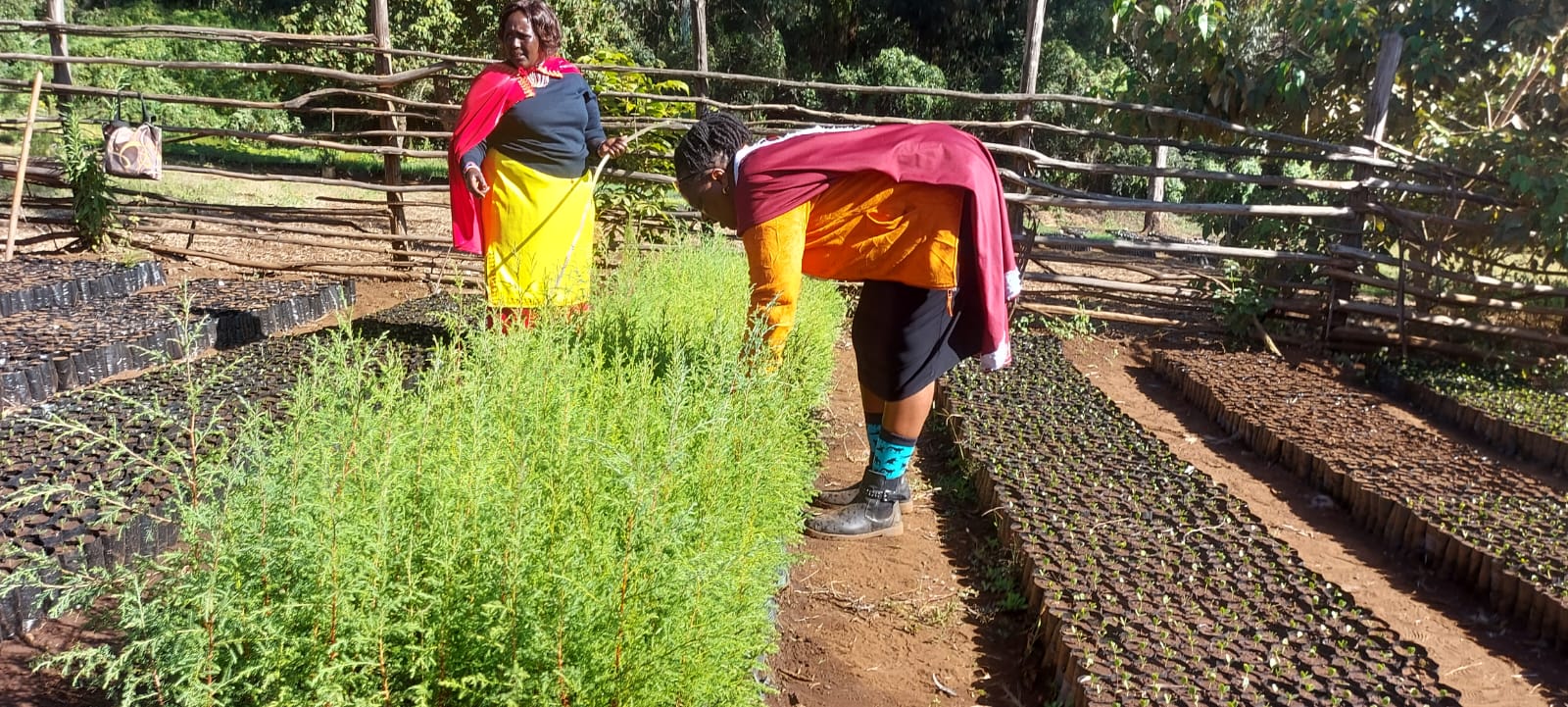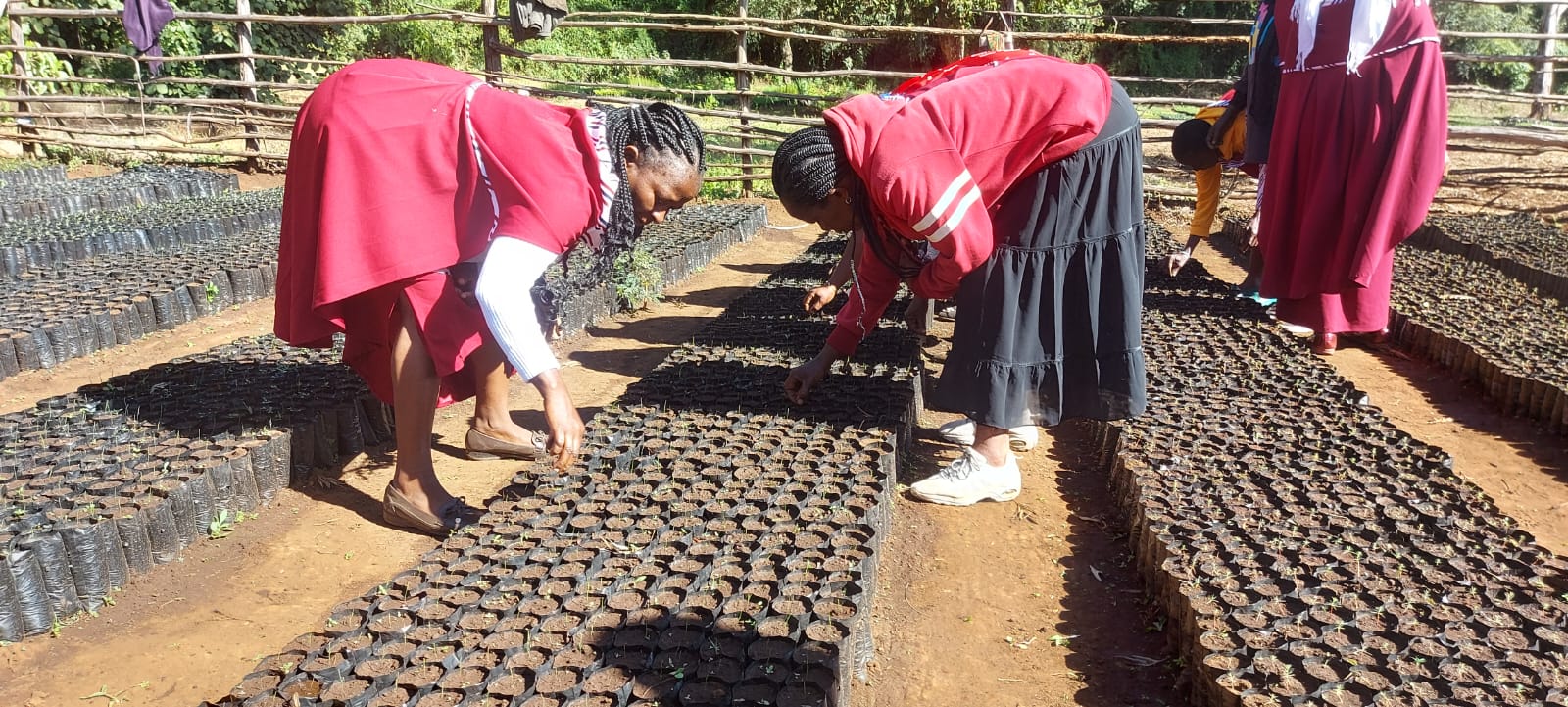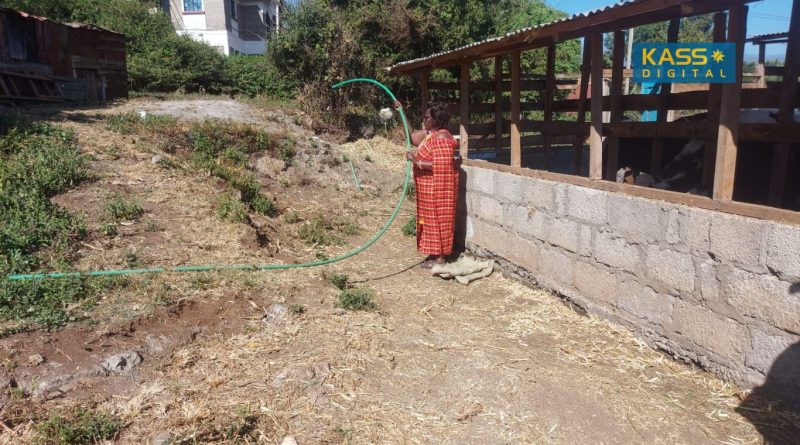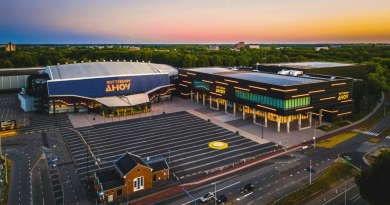Bridging gender gaps in financial services
Empowering widows through Insurance and Microfinance
By Carolyne Tomno
Elizabeth Sinei, a 58-year-old widow from the Maasai community, faced severe financial hardship after losing her husband. Left to support her children alone, she took on various odd jobs to make ends meet. The COVID-19 pandemic worsened her struggles as lockdown restrictions cut off her sources of income. ”
We had no one to turn to for help,” Sinei recalls. Determined to find a solution, she reached out to other widows facing similar challenges, leading to the formation of the Osiligi Women’s Group.
A Community of Hope and Resilience
Osiligi, meaning “hope” in the Maasai language, was founded in Kajiado County, near Kenya’s border with Tanzania. Starting with 45 members, the group has continued to grow, offering a lifeline to widows in indigenous communities who face stigma, discrimination, and economic exclusion. In many cases, Maasai widows are denied inheritance rights, leaving them without land or livestock.
Initially, the group met in secret to avoid conflict with male community members. “We used to meet at night” Says Sinei. Over time, they gained confidence in their mission to achieve financial independence. Sinei is now a successful dairy farmer who has managed to educate all her children, breaking long-standing economic and social barriers in her community. She has also diversified into growing fodder crops, both for her livestock and for sale.
Another member, Pauline Muthoni, lost her husband eight years ago and was left with nothing. “When my husband died, our lives were shattered. I could not provide for my children,” she says. Joining Osiligi transformed her life—she is now a thriving businesswoman and has successfully educated all four of her children, two of whom have graduated from university.
With the group’s financial support, she even completed the construction of her home, a dream she thought had died with her husband. “We encourage young widows to join us,” Pauline adds.
Building Sustainable Livelihoods Through Financial Literacy.
Beyond financial independence, Osiligi widows are actively engaged in environmental conservation through the Kajiado South Network. They run a tree nursery that generates income while promoting sustainability.

Photo Credit —Caro Tomno
Women in indigenous communities like the Maasai have traditionally played a crucial role in society, yet their financial independence remains limited. Responsible for raising children, tending to livestock, and managing households, they often lack control over financial resources.
Low literacy levels and cultural resistance to financial management exacerbate their economic vulnerability. Furthermore, climate change is making income-generating activities even more precarious.
Raising Awareness and Access to Financial services and Insurance
A significant barrier to financial security for Osiligi widows is the lack of awareness about insurance and its benefits. Many remain unfamiliar with risk management strategies, leaving them vulnerable during emergencies. “Without insurance, they are often forced to deplete our savings in times of crisis”. Says Sinei.
Economic empowerment programs integrate financial literacy training, equipping women with the knowledge to make informed decisions about long-term financial planning. Recognizing these challenges, organizations like the World-Wide Fund (WWF) have stepped in to provide financial literacy training and business support. Many Osiligi widows have since developed sustainable businesses, learning how to manage finances effectively and invest in their future.
And by increasing their incomes through entrepreneurship and small-scale farming, these women can now afford insurance policies that safeguard their financial well-being. The NGO has played, a critical role in this transformation by providing training, capital, and market linkages to help women establish sustainable livelihoods.
Addressing the Gender Gap in Insurance Services
There is hope for the Osiligi widows. Faulu Microfinance Bank are creating flexible financial products specifically designed for Marginalized groups. These include insurance solutions, accessible micro-loans, savings accounts, tailored to their unique needs.
Faulu Bank’s CEO, Julius Ouma has reaffirmed its commitment to empowering small businesses through personalized financial solutions.
“Our insurance products will ensure that our customers have confidence and peace of mind, knowing that their businesses are protected from unforeseen risks,” says Ouma.
The bank is also extending its focus to small businesses in both urban and rural areas, offering comprehensive financial products for managing and expanding business operations.
Sieka Gatabaki, Program Director at Mercy Corps AgriFin, emphasizes the importance of inclusive financial services in bridging the gender gap. Financial inclusion remains a major challenge for women, particularly in marginalized communities.
Limited access to resources, low literacy rates, and societal restrictions hinder their ability to utilize financial services effectively. However, digital technology presents a promising solution, offering tailored financial services that can reach women in remote areas.
Breaking Social Barriers
Kenya’s indigenous communities are often entrenched in patriarchal norms that restrict women’s economic participation. The success of the Osiligi widows challenges these traditions, proving that women can independently manage finances, support their families, and contribute to their communities.
And as financial institutions increasingly recognize these women as viable clients, access to essential services like insurance is growing, fostering a more equitable society.

Photo Credit —Caro Tomno
With access to insurance and financial literacy, these widows are not only protecting themselves from unforeseen financial risks but also strengthening the resilience of their families and communities. By breaking economic and social barriers, they are paving the way for a future where women have equal opportunities to thrive.
Enhancing Resilience
The journey of the Osiligi Women’s Group highlights the transformative power of collective action, financial literacy, and tailored financial services. Through microfinance, entrepreneurship, and education, these widows have built sustainable livelihoods, defying societal norms and achieving financial independence. As digital technology and inclusive financial services continue to expand, more women in marginalized communities will have the opportunity to break free from economic hardships, ensuring a brighter and more secure future for generations to come.




